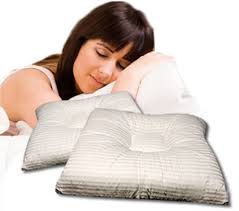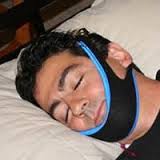Snoring is a huge problem. At least 45% of adults snore occasionally and more than half of those people snore nightly.
Do You Want to Know How to Stop Snoring?
We have reviews and recommendations to help you solve the problem. It’s all in everyday words too… no technical language here.
Why You Want to Stop Snoring?
Did you ever hear a spouse talk about their partner’s snoring? It can be REALLY hard on a relationship if you just know that you’ll be laying next to a loud snorer every night.
Most spouses resent the noise, and they’re even angrier if you won’t do anything to solve it. Marriages have even ended because of loud snoring. It’s pretty sad.
The other problem is that snoring is unhealthy. For one thing, you’re not getting restful sleep when your snore habitually. It can make you feel run-down, stressed – almost unable to function at your job or stay awake for time with your family.
There can be far more critical health complications, too, but we’ll talk about those later.
There Are Great Options to Stop Storing
If you know your snoring is out of control, you probably HATE the idea of spending nights in the hospital for a sleep study, or maybe even… surgery!
The really good news is that science has given us all kinds of anti-snore devices that you can order directly. A lot of them are even $100 or less.
We put together a list of our favorite anti-snoring aids. But I hope you’ll read the rest of this article for a simplified explanation of the science that helps you stop snoring.
Most Popular Anti-Snoring Devices
It seems like the options to control problem snoring are growing every year. It’s exciting that they can save you from potential surgery, not to mention being easy on your wallet.
Here are the main categories:
- mouthpieces
- chinstraps
- pillows
- mattresses
- nasal strips
- drops
Lots of good options. Don’t worry… we are going to explain how each one can hep with snoring problems.
Anti-Snoring Mouthpieces
Anti-snoring mouthpieces or MAD devices hold the jaw in a slightly forward position preventing the tongue from blocking the flow of air down the windpipe and resulting snoring.
Most mandibular advancement devices consist of mouthpieces or mouth guards that are inserted into the mouth to adjust the position of the jaw during sleep. To see a typical MAD, you can visit here. Unfortunately, the mouth guard approach has several drawbacks that are consistently reported by consumers in mandibular advancement device reviews, namely:
- They cannot be used if you have gum disease, false teeth, caps or uneven teeth.
- It is not always possible to obtain a good fit.
- Various levels of discomfort are reported during and after use.
- Some users find falling asleep difficult when wearing a MAD.
- Most users experience excessive salivation as a natural reflex reaction to having a foreign object in the mouth.
- Some devices obstruct breathing through the mouth (a particular problem for those who suffer from sinus congestion).
- Some devices tend to fall out of the mouth during sleep.
- Devices have to be removed before drinking water or being able to speak.
- Pharmaceutical studies report that a high percentage of users experience mucosal dryness, tooth discomfort and excessive salivation (hpyersalivation).
- There are concerns that normal bite pattern may be affected over time.

These typical complaints are repeatedly seen in mandibular advancement device reviews. For a typical example, read the Good Morning Snore Solution review.
What Other Alternatives Are There?
Since mandibular advancement devices in the form of mouthpieces are problematic for many users, you may be considering a radical intervention in the form of the pillar procedure, a form of surgery aimed at reducing snoring and snoring-related sleep apnea. However, apart from a natural desire to avoid surgery, pillar procedure cost is very high, and it is not always successful either, so looking for further alternatives is a logical next step.
Sleep apnea sufferers may also find that they are seeking alternatives to the CPAP machine. There is some argument and confusion on forums as to whether preventing snoring will necessarily prevent sleep apnea, but the medical fraternity confirms that in a large percentage of cases, this is the case.
Are there natural remedies for snoring that could eliminate the need for extreme interventions such as surgery or the use of cumbersome and expensive CPAP machinery?
Do All Stop Snoring Mouthpieces Work the Same Way ?
The concept of keeping the airways open by adjusting the position of the jaw has a sound logical basis, but mandibular advancement device reviews show that the traditional approach of wearing a mouthpiece results in a variety of issues and problems for the snorer.
However, there are two devices that can be used to adjust the position of the jaw according to the same principle used in standard MADs, but without the need for a dental appliance that is inserted into the mouth.

- SnoreLess Pillow
The first of these is the Sleep Apnea Pillow, also known as the CPAP pillow. This simple approach makes use of a pillow that is designed to hold the head in a position in which the jaw is naturally kept in the forward position that mouthpieces strive to achieve.
In this sense, it could be seen as a mandibular advancement device since it uses the same principle in its approach to treating snoring.

- My Snoring Solution Chinstrap
The second possibility that is attracting positive comment from those who have tried it, is a chinstrap device that holds the jaw in position from the outside.
Feedback regarding this approach is typically excellent, and you can find them at relatively inexpensive cost all over Amazon.com.
The Upshot of It All
Although studies support the use of stop snoring mouthpieces as an alternative to surgery or the use of CPAP machines in sleep apnea sufferers, many consumers report difficulties with using the standard anti-snoring mouthpiece design.
A comparative study of devices using the principle of stop snoring mouthpieces to prevent snoring and sleep apnea shows that mouthpieces are by no means the only approach to this principle that can be applied and that better results and greater comfort can be achieved through using a CPAP pillow or a properly designed chinstrap device.
